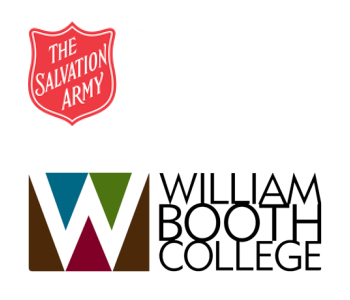Open Learning
Open Learning correspondence courses are available to everyone and offers adults over the age of 18 the opportunity to explore the Bible and learn more about the Christian Church and its beliefs. Open Learning students can be Christians or enquirers, of any religious persuasion or none.
With three different levels of study available, it is not necessary to have studied before in order to apply for one of our courses. Some adults who have not studied for some time also decide to use Open Learning courses as ‘back to study’ opportunities.
Open Learning courses encourage students to reflect on and apply what they learn to their own life experience and faith. Some courses also help students to develop practical resources for ministry.
Each student has a qualified personal tutor who provides support, guidance and encouragement as they progress through their course. The tutor will also grade assignments and give feedback on written work.

Courses
These are mainly in workbook form, and there are worksheets to be completed for each lesson.
It consists of five lessons.
Suitable for:
- People who don’t have a comprehensive knowledge of the Bible.
- People who are not used to doing written studies.
- New Christians who want to learn more about the Christian faith.
- People who want to learn about other faiths
Cost:
£40 per course
These courses require short pieces of written work.
They give you introductory information on your chosen subjects and aim to stimulate you into further reading and study.
It consists of six lessons.
Suitable for:
- People who have completed a starter course and are looking to move onto a higher level of study
- People who have not studied for some time and would like to ease back into academic learning
Cost:
£60 per course
These courses aim to encourage and resource you for in-depth study, and to explore and apply what you learn to your own life. There is a set text book and suggested additional reading. Assignments vary and include, but are not limited to, writing essays.
It consists of six lessons.
Suitable for:
- Experienced students
- People who have completed a foundation course and are looking to move to higher level of study.
- People who have not studied at a more advanced level for some time and would like to ease back into academic learning.
Cost:
£80 per course
Open Learning has now introduced bite sized courses. These are short, single pieces of work that aim to introduce you to a range of different topics. They are available at Starter, Foundation and Award levels:
Suitable for:
- Students of all abilities – simply select the level that suits you
- People with limited time to study
- People who want an introduction to a specific topic
Cost
- Starter level: £10 per lesson
- Foundation level: £15 per lesson
- Award level: £20 per lesson
Lessons are available in different fonts, large print and printed on off white or on coloured paper for those who have additional needs. Please ask when enrolling.
Download the course brochure to learn more about each course we have available.
If you need support to cover the cost of any of our courses or for more information, please contact:
[email protected]
Certificate
Open Learning courses are not externally validated but are certificated by The Salvation Army’s William Booth College.
Individual certificates of completion are awarded after every course is successfully completed.
Additional certificates can also be achieved.
The Starter Course in Christian Studies
Awarded for the completion of:
- Any five Starter courses
The Foundation Course in Christian Studies
Awarded for the completion of five Foundation courses:
- One Foundation course from each of the four categories
- One additional Foundation course of the student’s choosing
The Award Course in Christian Studies
Awarded for the completion of four Award courses:
- One New Testament Course
- One Old Testament Course
- History of the Early Church
- One additional Award course of the student’s choosing
Featured Course List
Click on each course title to read more about them. A full list of our courses can be found in our course brochure.
Starter
BIBLICAL STUDIES: THE OLD TESTAMENT
A personal journey through 5 psalms of prayer and praise
Aim: This course is designed to help you grow in the Christian faith through an introductory study of five psalms
Method of study and assessment: Completion of worksheet for each lesson.
Content: Five Lessons
- Psalm 139: ‘Lord… you know me’
- Psalm 140: ‘Sovereign Lord, my strong deliverer’
- Psalm 141: ‘In you I will take refuge’
- Psalm 143: ‘Teach me to do your will’
- Lesson 5 Psalm 145: ‘Every day I will praise you’
Reading: The workbook notes and the Good News or New International Version of the Bible
BIBLICAL STUDIES – THE NEW TESTAMENT
Aim: There are four gospels in the New Testament: Matthew, Mark, Luke and John. They are the first four books in the New Testament. Each gospel tells the story of Jesus in its own way. This course gives you an overview of the life of Jesus in John’s gospel.
Method of study and assessment: Completion of worksheets for each lesson.
Content: Five Lessons
- Who is Jesus?
- Jesus in action
- I have come in order that you might have life
- Teach the disciples
- A new beginning
Reading: The workbook notes and the Good News or The New International Version of the Bible. The Bibles translation used in the workbook notes is Today’s New International Version.
CHRISTIAN LIFE
An Introduction for New Students
Aim: This introductory course aims to help you understand more about the Bible. It suggests resources to help you to study it and encourages you to explore how it continues to speak to our lives today. We hope that at the end of this course you will feel able to undertake further study of the Bible using the skills you have gained.
Method of study and assessment: Completion of worksheet for each lesson.
Content: Five Lessons
- Understanding the Bible: Using different translations
- Comparing Bible Translations: Psalm 1
- Resources to help with Bible study: Study Bibles, Bible Concordances, The Lion Handbook to the Bible
- More resources for Bible study: Bible Dictionaries, Bible Commentaries
- Understanding and applying the Bible’s message today: Paul’s letter to the Galatians
Reading: Have available a version of the Bible that you find easy to read. all the information needed to complete the exercises in this study guide is given in the notes. However, study resources are also recommended for your own use if you wish to continue to explore the Bible after you have finished this course.
Foundation
BIBLICAL STUDIES: THE OLD TESTAMENT
Messages from Old Testament prophets
Aim: This course introduces you to the message of seven Old Testament prophets. You will also be encouraged to explore their meaning for life today and for your own relationship with God and others.
Method of study and assessment: The assignments for each lesson require short written answers to three questions.
Content: Six Lessons
- The message of Amos
- The message of Hosea
- The message of Isaiah (1-39) and Micah
- The message of Jeremiah
- The message of Ezekiel
- The message of Isaiah (40-66)
Reading: The New International Version of the Bible, as well as the information provided you are also encouraged to do some additional reading. Helpful study resources are suggested in the study guide including: P; Alexander, D. 2017 The Lion Handbook to the Bible 5th Revised Edition. Oxford: Lion
BIBLICAL STUDIES – THE NEW TESTAMENT
Aim: This course introduces you to the Book of Acts and to some of the letters Paul wrote to newly formed Christian communities.
Method of study and assessment: The assignments for each lesson require short written answers to three questions.
Content: Six Lessons
- The church is born (and the first Christian message)
- Stephen the first Christian martyr and the man who consented to his death
- Peter’s vision and a new direction for mission
- Paul the missionary
- Still travelling – Paul’s third journey and the road to Rome
- Paul the letter writer
Reading: As well as the information provided, you are also encouraged to do some additional reading. Helpful study resources are suggested in the study guide, including: Alexander, P; Alexander D. 2017 The Lion Handbook to the Bible 5th Revised Edition. Oxford: Lion and The New International Version of the Bible.
CHRISTIAN LIFE AND THE SALVATION ARMY DISTINCTIVES
Exploring the Biblical basis for Christian social and community service
Aim: This course helps you to explore what the Bible has to say about God; his desire that all people should come to know him and the responsibility God’s people have to those in need. The course also looks at how, from the beginning, Christians have responded to and continued that teaching.
Method of study and assessment: For each lesson, you will have a choice of assignments. You may write short answers to all three questions set, or you can choose to answer just two of the questions in more detail. A word count for your answers is given for your guidance.
Content: Six Lessons
- Salvation for both worlds- Willian Booth (the founder of The Salvation Army)’s changing thought on making social service a part of the movement’s mission
- God in us- God’s view of human beings and our response
- A charter for living – God’s covenant and guidance for living
- True offerings – the message of the prophets on restoring relationship with God through loving him and caring for each other
- Jesus, our example – Jesus’ example and teaching on how we should live our lives with regard to our duty to God and each other
- The Church in action – the book of Acts and the letters to the early church (the Epistles) show holistic mission in action
Reading: The New International Version of the Bible. Each lesson includes Bible passages to study and think about. In addition to the Bible passages there will be articles for further reading. You will be expected to use the study guide notes, your reading and reflection to help you answer the assignment questions.
Award
This study guide builds on the Open Learning course How to study the Bible: an introduction for new students and covers six Bible passages, three from the Old Testament and three from the New Testament.
Aim: This course introduces you to resources that will help you to explore what each study passage intended to say to its original readers; to hear how it continues to speak today and to reflect on an appropriate personal response.
Learning Outcomes: At the end of this course you should be able to:
- Identify key features of each study passage
- Explain what each passage aimed to say to its original recipients
- Explain what your understanding of the relevance of the passage to life today
- Explain your personal response to the passage
Content: Six Lessons
- ‘Then God spoke all these words’ (Exodus 20:1-17; Exodus 23:1-13)
- ‘…but Hannah had no children’ (1 Samuel 1:1-20)
- ‘So I went down to the potter’s house…’ (Jeremiah 18:1-12)
- ‘…not even in Israel have I found such faith’ (Luke 7:1-10)
- ‘…welcome him as you would welcome me.’ (Philemon 1:17)
- ‘Listen!’ (Revelation 3:14-22)
Level: You should be prepared to undertake the key reading as well as find and use other appropriate study resources. Assignments consists of writing explanatory notes on the study passage for each lesson (points to include are suggested) and a short essay summing up your learning about the passage studied and its significance of life today, which will require you to include references and bibliographies.
Reading: The New International Version of the Bible. The basic reading for this course is Gordon D. Fee and Stuart, Douglas 2003 How to rRead the Bible for All Its Worth (Third Edition). USA: Zondervan Additional reading is suggested in the study guide.
BIBLICAL STUDIES – THE NEW TESTAMENT
Aim: This course introduces you to the story of Jesus’ life and ministry as it is told by Gospel writers Matthew, Mark and Luke. We hope that this course will inspire and equip you to further study of these gospels and other parts of the New Testament. This course also aims to encourage reflection on Christian faith, life and service.
Learning Outcomes: At the end of this the course, you should be able to:
- Describe how each gospel presents Jesus and his ministry
- Identify the main themes and characteristics of each of the Synoptic Gospels
- Explain the relevance of Jesus’ life and ministry to Christian life today.
Content: Six Lessons exploring the person and ministry of Jesus in the Synoptic Gospels and the social, political and religious background to his life and teaching.
- Mark’s Gospel: Announcing the Good News
- Matthew’s Gospel: God’s praises fulfilled
- Luke’s Gospel: Good News for everyone!
- Understanding the context: Palestine in the time of Jesus
- The heart of the Gospel: Jesus – teacher and healer
- The heart of the Gospel: The Kingdom of God
Level: You should be prepared to undertake the key reading as well as find and use other appropriate study resources. Assignments include essays of 800 words which will require you to include references and bibliographies.
Reading: You will find it helpful to supplement the information given in this study guide by reading: Diane, John 2019 Introducing the New Testament, Fourth Edition. Oxford: Lion Hudson, Stanton, Graham 2002 The Gospels and Jesus. (Oxford Bible Series) UK: Oxford University Press and The New International Version of the Bible.
BIBLICAL STUDIES – THE NEW TESTAMENT
Aim: This course aims to provide a detailed guide to Paul’s first letter to the Christian Church in Corinth.
Learning Outcomes: At the end of this the course, you should be able to:
- Describe the historical background to this letter and explain why it was written.
- Summaries the contents of the letter, highlighting its themes and the topic it covers
- Explain the Christian doctrine and ethical teaching in the letter and the insights it gives into the life in the Christianity community.
Content: This course consists of ten lessons looking in detail at the 16 chapters in the letter.
- The Corinthian Church
- Danger in Division (1 Corinthians 1:1 – 2:5)
- Babes in Christ (1 Corinthians 2:6 – 3:6)
- Fools, for Christ’s sake (1 Corinthians 3:10 – 4:21)
- Christian Liberty (1 Corinthians 5:1 – 7:40)
- Corinthians Customs (1 Corinthians 8:1 – 10:13)
- Corinthians in a Non-Christian Environment (1 Corinthians 10:14 – 11:34)
- Make love your aim (1 Corinthians 12:1 – 14:40)
- Christ is Risen! (1 Corinthians 15:1 – 58)
- A Practical Turn of the Mind (1 Corinthians 16:1 – 24)
Level: You should be prepared to undertake the key reading as well as find and use other appropriate study resources. Assignments for each lesson include short pieces of written work and more substantial essays based on research.
Reading: The New International Version of the Bible
Morris, Leon 1966 1 Corinthians: Tyndall commentaries. Leicester: Inter-Varsity Press Drane, John 2019 Introducing the New Testament, Fourth Edition. Oxford: Lion
Additional reading is provided in the course notes.
Helpful additional reading on the New Testament:
Ewell, Walter A. Yarborough, Robert W. 2005 Encountering the New Testament: A Historical and Theological Survey. USA: BakerAcademic
Alexander, P. Alexander, D. 2017 The Lion Handbook to the Bible Fifth Revised Edition. Oxford: Lion

